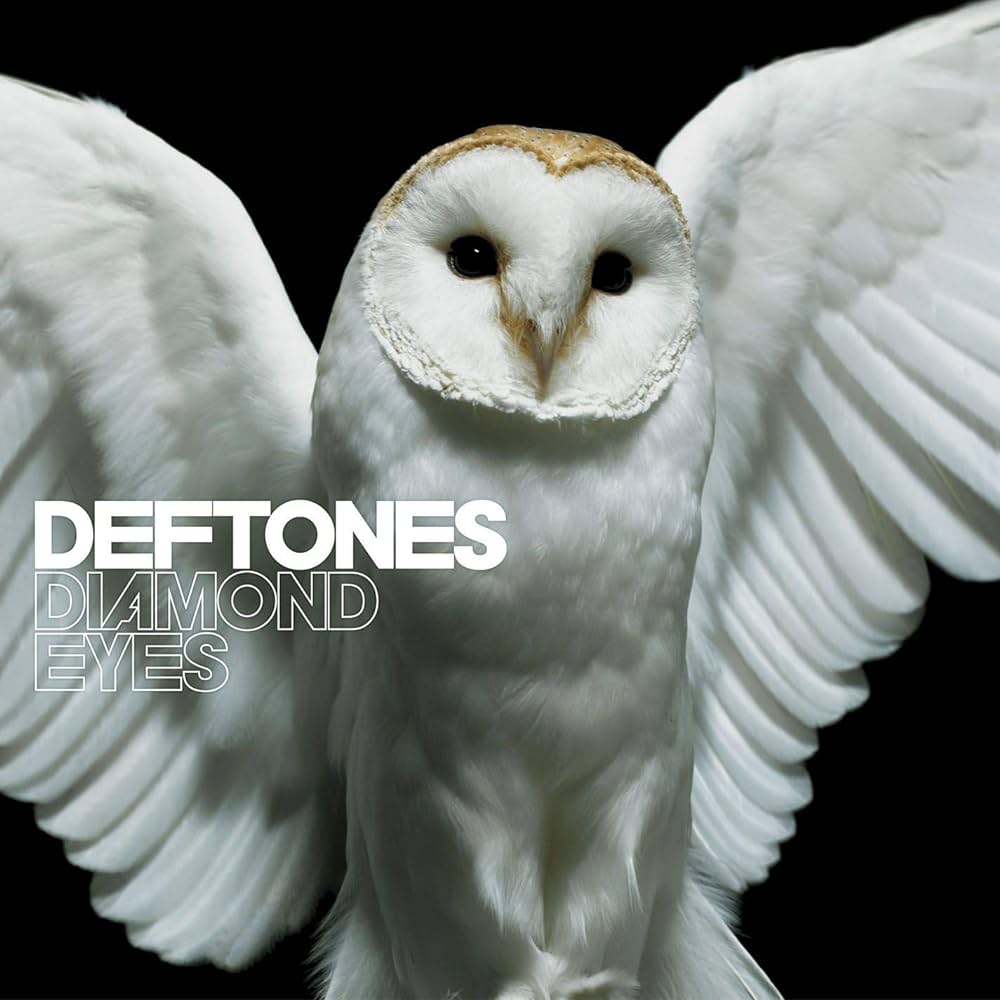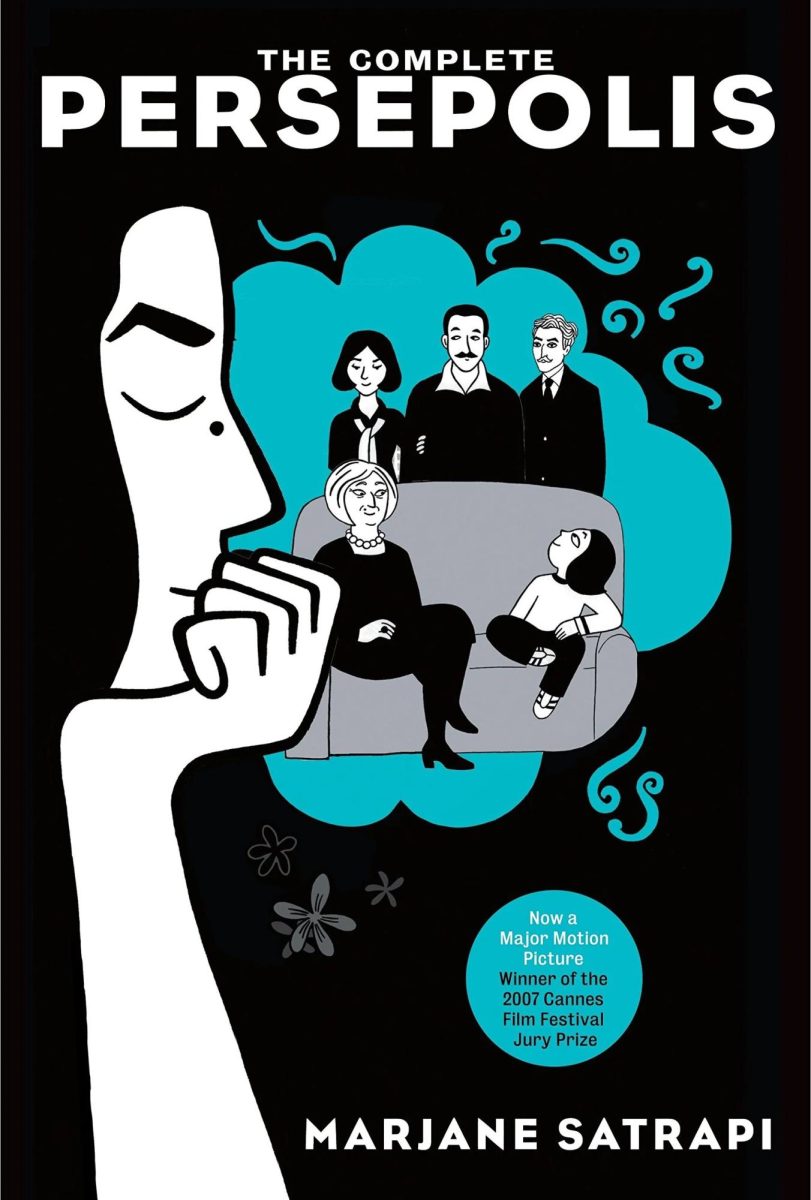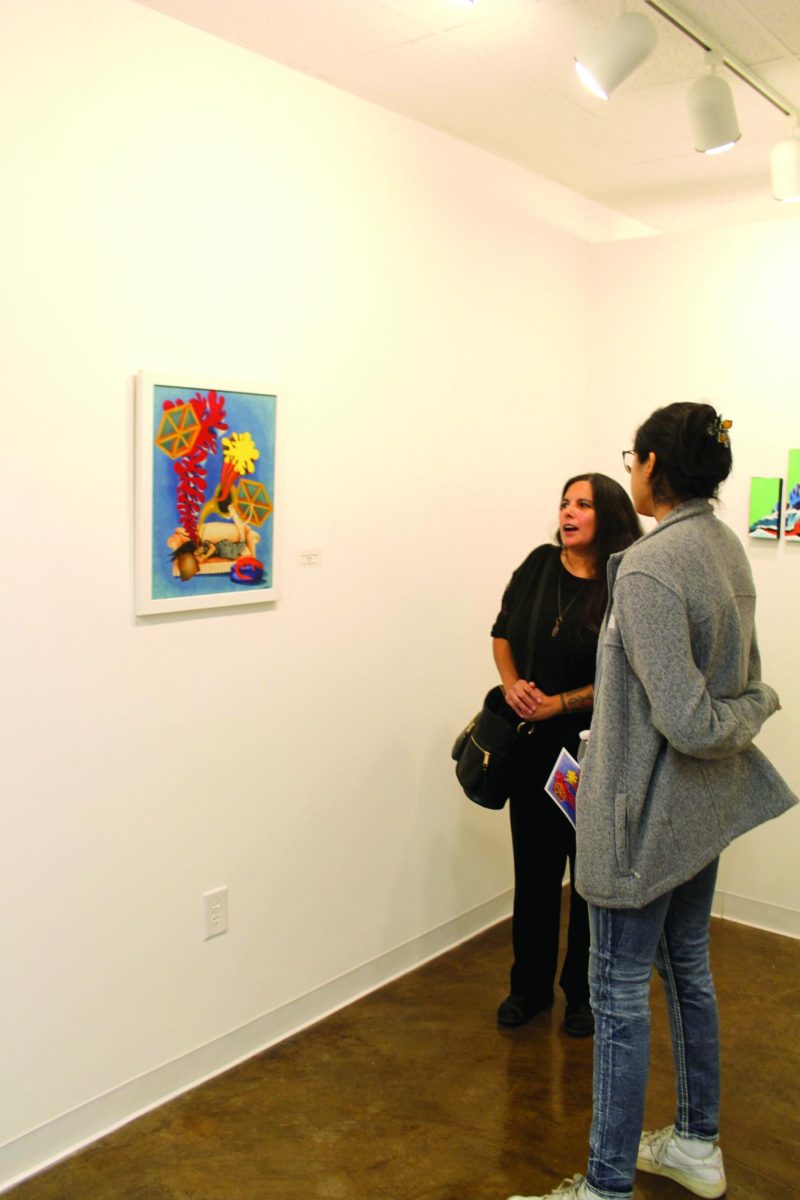Deftones’ sixth album “Diamond Eyes” is a perfect example of life’s unexpectedness and the creativity that can come out of its chaos. For a project the band never expected to make, it performed well both critically and commercially while putting the wind back in the band’s sails.
“It was just a really weird situation that we ended up in and that we couldn’t have seen coming,” keyboardist/turntablist Frank Delgado told MusicRadar. “We threw ourselves into it and it just so hap- pened ‘Diamond Eyes’ is what came out of it.”
It’s rare for a band to stay relevant and reinventive for as long as Deftones has.
Since gaining popularity through touring with their 1995 debut, “Adrenaline,” from “Around The Fur” to “Saturday Night Wrist,” the band only increased in popularity and branched further away from their heavy start into other genres such as industrial rock and shoegaze, a dream-like genre consisting of heavily reverbed vocals and atmospheric distorted guitar.
Despite their multi-level success, band relations were at an all-time low around the time of their fifth album’s release. Work on “Saturday Night Wrist” had devolved into the bandmates recording their parts separately and piecing the album together.
Speaking about the sessions, frontman Chino Moreno said to Teamrock.com: “Communication stopped. Instead of us arguing about things we just gave up.”
However, once they started touring, the chemistry that drew them together 15 years prior began to re-surface and the band started on what would’ve been their next album, “Eros,” with rejuvenated relations.
Guitarist Stephen Carpenter says they were about 70-75% finished with the album when tragedy struck.
On Nov. 4, 2008, Chi Cheng, the band’s bassist, was involved in a car accident that left him in a semi-
comatose state.
For about four months the band stayed dormant and waited to see if their friend would recover, but Cheng remained in this state until he died in 2013.
Around February 2009, the band began playing again with Sergio Vega picking up bass duties, as he had filled in for Chi once before in 1999.
By June the group had started working on “Diamond Eyes” with producer Nick Raskulinecz and had it finished in only two months — their fastest turnaround ever. The album’s title track greets the listener with stabbing, incomplete riffs from Carpenter that drive the song forward as Moreno’s vocals switch seamlessly from grating against the mic to giving it a nice sound cushion to rest on.
One fill later and Cunningham and Vega are leading the band in a mixed-meter (3-3-2) chorus that ends in a cool pickup. From the first song, every member of the group is on full blast, and it doesn’t stop there.
Carpenter is a driving force as always on this album and is actually the main reason the band exists in the first place. At 15, he was hit by a car while skateboarding and picked up the guitar during his downtime, causing Moreno to quickly orchestrate a jam session with Abe Cunningham as their drummer.
When asked about his sound on this album, Carpenter said this to MusicRadar: “You know how you sometimes have to get in a crowded elevator, and you think for a second, ‘Do I get in or should I just wait?’
Well, with this band, I feel like I’m the guy about to get on the elevator, only I don’t have that luxury of waiting. I just have to crash my way in, you know? But I don’t mind. And I also don’t ever feel like I’m doing something unique or spectacular; I’m just enjoying myself with my friends and we’re all in it together.”
Cunningham has one of the most recognizable styles in drumming, which is showcased nicely in songs where he gets to shepherd the rest of the band through different meters, such as the opener and “Rocket Skates.” Simultaneously, tracks such as “Prince” with its offbeat groove and “You’ve Seen The Butcher’s” countless “puh-duh-duhs” highlight Cunningham’s ability to come up with abnormal, iconic drum parts.
Delgado shows out in “Beauty Schools” intro, giving it a hip-hop feel and one of the most addicting drop-ins of the band’s discography. On this track, Carpenter sticks to a higher register, allowing Vega to shine through with his groovy bass lines.
Moreno’s voice is as much an instrument as anything man-made, and he wields it as such. His voice grinds its way out in “Prince” as Carpenter lays down a heavy foundation to stand on. “976-EVIL” has Moreno switch gears completely and throws the band into a shoegaze mix with his now ethereal, drawn-out vocals. Tracks such as “Royal” showcase him jumping back and forth between the two with ease.
“Sextape,” the emotional catharsis of this album, is one of Deftones’ rare lighter songs. Carpenter and Vega lay down a simple but heavily reverberated melancholic guitar line for Moreno to soar over vocally, filling the air with angst and a feeling of longing. Moreno draws the audience even further in before the band launches into one of their best choruses: a wailing soundscape set by Carpenter with Moreno singing his heart out, reminiscent of their classic “Be Quiet and Drive (Far Away).”
“Risk” feels like the band’s message to their fallen brother. Carpenter’s abruptly changing riff pattern alongside Delgado’s unsettling keys and Cunningham’s trashy hi-hat/fat snare combo immediately gives an urgent, unsettling feel to the song. Moreno starts both verses anxiously and seems to be speaking directly to Cheng in short, abrupt bursts: “You can’t talk/I’m anxious/ I’m right here just/Come outside/ And see it” and “You’re locked up/You exhaled/You did it before and I seen it/Come outside/And breathe in/Relax your arms and let me in.”
“Diamond Eyes” debuted at No. 6 on Billboard and was named Album of The Year by Kerrang and Rock Album of The Year by iTunes. It just goes to show that some of the best work can be created under the worst circumstances.








